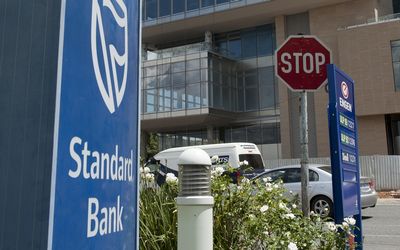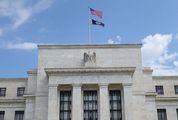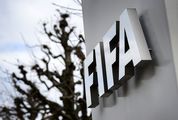STANDARD Bank reported on Thursday good performance for the year to December, but the group is wary of a downgrade of SA’s sovereign credit rating, warning that it would hurt its profitability.
The bank said return on equity — a measure of profitability — had reached 15.3% and was within its medium-term target range of 15% to 18%. However, further growth depended on a stable economic environment, joint CEO Sim Tshabalala said.
There was also a risk SA’s debt could be cut to subinvestment grade.
A day after the firing of Nhlanhla Nene as finance minister in December, there was a 45 basis-point surge in the insurance cost holders of SA’s bonds were charged as protection against nonpayment.
"If we get downgraded, the premium demanded will be higher," said Victor Mphaphuli, head of fixed income at Stanlib. "A lot of the downgrade concerns are already priced in by the market."
He indicated that the cost of insurance would rise higher if SA were downgraded.
The group reported a 27% increase to R22bn in headline earnings, driven mainly by the corporate and investment bank. That unit saw a 10.5% increase in earnings from continuing operations, to reach R7.9bn.
Including the London unit, which the bank sold to the Industrial and Commercial Bank of China early last year, earnings grew 59%.
It benefited from a number of major deals including acting as the sole corporate finance adviser for Brait’s R12.2bn acquisition of 78% of gym chain Virgin Active; and providing financial advisory and transaction sponsorship services to Anheuser Busch Inbev on its R3.1-trillion inward listing on the JSE.
But the corporate and investment bank brought its share of pain for Standard Bank, with a 59% acceleration in bad debts for the year, reaching R1.3bn. It had come under strain from its exposure to the energy, mining and metals sectors.
Joint CEO Ben Kruger played down the steep increase in bad debts, saying the corporate and investment bank’s impairment charges were small compared to its earnings.
The unit’s credit loss ratio impairment charges as a percentage of gross loans rose to 0.24% compared with 0.22% the previous year.
"It’s actually very low," said Mr Kruger, comparing it to 2013’s 0.41%. "I think the market will think we’re fine."
Rival Nedbank reported a credit loss ratio of 0.4% for its corporate and investment bank on Wednesday.
Jihad Jhaveri, an analyst at Kagiso Asset Management, said the key reason for the bad debts was provision for future bad debts, especially in Nigeria.
"This is totally expected, given the drop in the oil price and issues related to currency restrictions." Abuja recently introduced capital controls to prop up the naira, which has made trading difficult for multinationals.

Standard Bank. Picture: MARTIN RHODES
STANDARD Bank reported on Thursday good performance for the year to December, but the group is wary of a downgrade of SA’s sovereign credit rating, warning that it would hurt its profitability.
The bank said return on equity — a measure of profitability — had reached 15.3% and was within its medium-term target range of 15% to 18%. However, further growth depended on a stable economic environment, joint CEO Sim Tshabalala said.
There was also a risk SA’s debt could be cut to subinvestment grade.
A day after the firing of Nhlanhla Nene as finance minister in December, there was a 45 basis-point surge in the insurance cost holders of SA’s bonds were charged as protection against nonpayment.
"If we get downgraded, the premium demanded will be higher," said Victor Mphaphuli, head of fixed income at Stanlib. "A lot of the downgrade concerns are already priced in by the market."
He indicated that the cost of insurance would rise higher if SA were downgraded.
The group reported a 27% increase to R22bn in headline earnings, driven mainly by the corporate and investment bank. That unit saw a 10.5% increase in earnings from continuing operations, to reach R7.9bn.
Including the London unit, which the bank sold to the Industrial and Commercial Bank of China early last year, earnings grew 59%.
It benefited from a number of major deals including acting as the sole corporate finance adviser for Brait’s R12.2bn acquisition of 78% of gym chain Virgin Active; and providing financial advisory and transaction sponsorship services to Anheuser Busch Inbev on its R3.1-trillion inward listing on the JSE.
But the corporate and investment bank brought its share of pain for Standard Bank, with a 59% acceleration in bad debts for the year, reaching R1.3bn. It had come under strain from its exposure to the energy, mining and metals sectors.
Joint CEO Ben Kruger played down the steep increase in bad debts, saying the corporate and investment bank’s impairment charges were small compared to its earnings.
The unit’s credit loss ratio impairment charges as a percentage of gross loans rose to 0.24% compared with 0.22% the previous year.
"It’s actually very low," said Mr Kruger, comparing it to 2013’s 0.41%. "I think the market will think we’re fine."
Rival Nedbank reported a credit loss ratio of 0.4% for its corporate and investment bank on Wednesday.
Jihad Jhaveri, an analyst at Kagiso Asset Management, said the key reason for the bad debts was provision for future bad debts, especially in Nigeria.
"This is totally expected, given the drop in the oil price and issues related to currency restrictions." Abuja recently introduced capital controls to prop up the naira, which has made trading difficult for multinationals.






















Change: 0.83%
Change: 0.93%
Change: 0.95%
Change: 0.73%
Change: 1.91%
Data supplied by Profile Data
Change: 0.58%
Change: 0.51%
Change: 0.83%
Change: 0.00%
Change: 0.63%
Data supplied by Profile Data
Change: -1.62%
Change: -1.08%
Change: -0.79%
Change: -1.28%
Change: -0.59%
Data supplied by Profile Data
Change: 2.32%
Change: 2.09%
Change: 2.36%
Change: 2.82%
Change: 3.44%
Data supplied by Profile Data